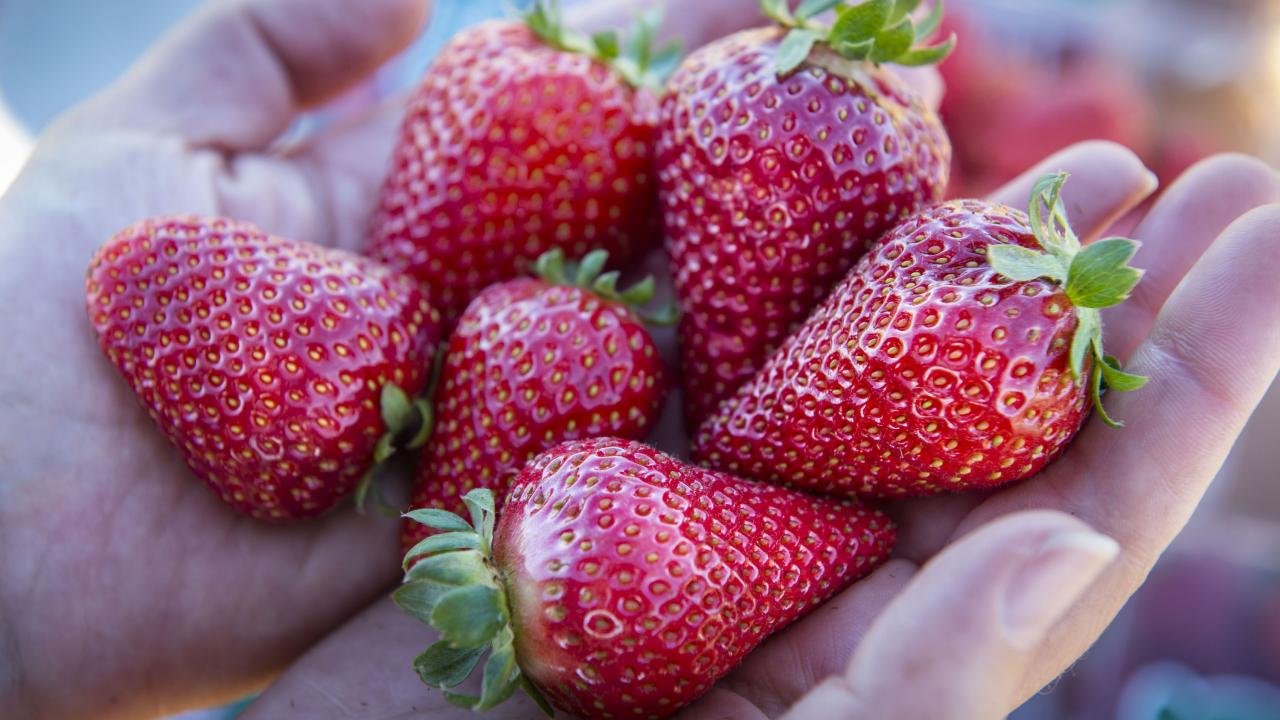The University of California, Davis, a leader in the development of world-class strawberry varieties for the California and global markets, is terminating all strawberry licensing agreements with Eurosemillas S.A., which has been a master licensee for older UC Davis strawberry varieties in countries outside of the United States.
The decision to terminate the UC Davis Public Strawberry Breeding Program licensing agreements with Eurosemillas does not come lightly. The University of California provided due notice to Eurosemillas of the university’s position that Eurosemillas had defaulted on its agreements, and the university’s concerns were not addressed.
The university is taking steps to provide stability for nurseries and fruit growers during this transition period, and ensure continued access to older UC Davis strawberry varieties. Newer UC Davis strawberry varieties continue to be available throughout the world per licensing agreements with other partners, Fresa Fortaleza and Global Plant Genetics.
“The UC Davis Public Strawberry Breeding Program has been a huge success for consumers, growers, California’s agricultural economy and the global strawberry market,” said Helene Dillard, dean of the UC Davis College of Agricultural and Environmental Sciences. “The step the university is taking today is necessary to support our growers and our program, and to ensure the scientific breakthroughs at UC Davis and resources provided by the state of California are cared for, managed and marketed properly.”
UC Davis holds active patents on 20 strawberry varieties, all of which have been licensed to nurseries to sell to strawberry growers.
The university directly licenses strawberry varieties to California nurseries, offering state strawberry growers exclusive access to new varieties for two years and reduced royalty rates to give them a competitive advantage. The university also directly licenses varieties elsewhere in the United States and Canada.
In markets outside North America, the university contracts with master licensees to work with nurseries, farmers and growers. International markets where UC Davis strawberry varieties are grown include the European Union, the United Kingdom and Switzerland; Argentina, Brazil, Chile, Colombia, Ecuador, Mexico, Peru and Uruguay; China; Egypt, Israel, Jordan, Morocco and Turkey; South Africa; Canada; New Zealand and Australia.
UC has been and will continue to be vigilant about supporting the UC Davis Public Strawberry Breeding Program and honoring its obligations to farmers and growers to ensure access to high-quality, affordable varieties in California and elsewhere. As a public research institution, UC diligently protects and promotes its intellectual property to maximize public value, support thriving agricultural economies and ensure reinvestment in university research and education.
About the UC Davis Public Strawberry Breeding Program
Strawberry varieties developed at UC Davis produce about 60% of all strawberries consumed worldwide.
Varieties developed at UC Davis have made California a leading producer, with the state growing more than 87% of North American strawberries.
The UC Davis Public Strawberry Breeding Program is funded primarily by revenue from licensing strawberry varieties. Licensing funds also support patent expenses, campus inventors, the UC Office of the President and UC Davis.
Annually, the University of California generally receives between $8 million and $9 million in licensing revenue from the strawberry breeding program.
UC Davis develops strawberry varieties for greater yield, disease resistance, flavor, adaptation to different growing conditions and other positive characteristics.
UC Davis breeders work collaboratively with industry leaders to produce fruit that meets the market demand and address the needs of growers.
The program also trains students and postdoctoral researchers to be leaders in this vital industry.
Media Resources
Media Contact:
- Bill Kisliuk, News and Media Relations, 530-760-9726, bkisliuk@ucdavis.edu
